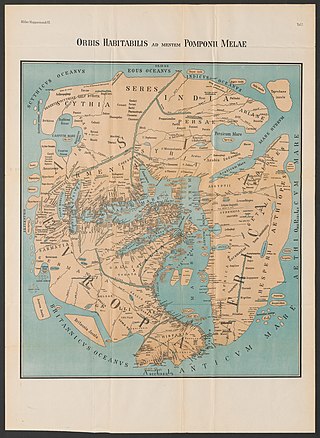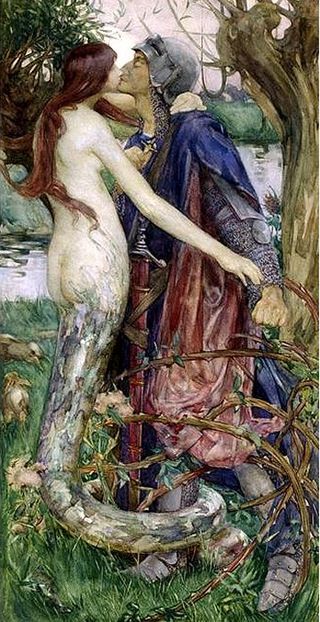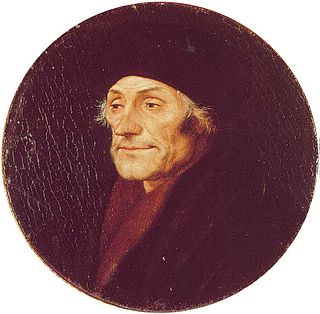
Quintus Horatius Flaccus, commonly known in the English-speaking world as Horace, was the leading Roman lyric poet during the time of Augustus. The rhetorician Quintilian regarded his Odes as the only Latin lyrics worth reading: "He can be lofty sometimes, yet he is also full of charm and grace, versatile in his figures, and felicitously daring in his choice of words."

The Homeric Hymns are a collection of thirty-three ancient Greek hymns and one epigram. The hymns praise deities of the Greek pantheon and retell mythological stories, often involving a deity's birth, their acceptance among the gods on Mount Olympus, or the establishment of their cult. In antiquity, the hymns were generally, though not universally, attributed to the poet Homer: modern scholarship has established that most date to the seventh and sixth centuries BCE, though some are more recent and the latest, the Hymn to Ares, may have been composed as late as the fifth century CE.

Johann Caspar von Orelli, was a Swiss classical scholar.

Gaius Julius Phaedrus, or Phaeder was a 1st-century AD Roman fabulist and the first versifier of a collection of Aesop's fables into Latin. Nothing is recorded of his life except for what can be inferred from his poems, and there was little mention of his work during late antiquity. It was not until the discovery of a few imperfect manuscripts during and following the Renaissance that his importance emerged, both as an author and in the transmission of the fables.

Pomponius Mela, who wrote around AD 43, was the earliest known Roman geographer. He was born at the end of the 1st century BC in Tingentera and died c. AD 45.

Lamia, in ancient Greek mythology, was a child-eating monster and, in later tradition, was regarded as a type of night-haunting spirit or "daimon".

Sextus Propertius was a Latin elegiac poet of the Augustan age. He was born around 50–45 BC in Assisium and died shortly after 15 BC.

Lucius Junius Moderatus Columella was a prominent Roman writer on agriculture in the Roman Empire.
Scholia are grammatical, critical, or explanatory comments – original or copied from prior commentaries – which are inserted in the margin of the manuscript of ancient authors, as glosses. One who writes scholia is a scholiast. The earliest attested use of the word dates to the 1st century BC.

Arethas of Caesarea was Archbishop of Caesarea Mazaca in Cappadocia early in the 10th century, and is considered one of the most scholarly theologians of the Greek Orthodox Church. The codices produced by him, containing his commentaries are credited with preserving many ancient texts, including those of Plato and Marcus Aurelius' "Meditations".

Franciscus Junius , also known as François du Jon, was a pioneer of Germanic philology. As a collector of ancient manuscripts, he published the first modern editions of a number of important texts. In addition, he wrote the first comprehensive overview of ancient writings on the visual arts, which became a cornerstone of classical art theories throughout Europe.

The Velabrum is the low valley in the city of Rome that connects the Forum with the Forum Boarium, and the Capitoline Hill with the western slope of the Palatine Hill. The outer boundaries of the area are not themselves clear. Roman etymologies of the name are confused, with attempts to connect it to the Latin words vehere (conveyance) and velum (cloth): Varro, Propertius, and Tibullus claimed that it was the location of a ferry; Plutarch, however, claimed the name derived from the awnings placed over the Circus Maximus during games. The name may also translate to "place of mud".

Venetus A is the more common name for the 10th-century AD manuscript codex catalogued in the Biblioteca Marciana in Venice as Codex Marcianus Graecus 454, now 822. Its name is Latin for "Venetian A."

Andreas Schott was an academic, linguist, translator, editor and a Jesuit priest from Antwerp in the Habsburg Netherlands. He was mainly known for his editions of Latin and Greek classical literature.
The so-called Vatican Mythographers are the anonymous authors of three Latin mythographical texts found together in a single medieval manuscript, Vatican Reg. lat. 1401. The name is that used by Angelo Mai when he published the first edition of the works in 1831. The text of the First Vatican Mythographer is found only in the Vatican manuscript; the second and third texts are found separately in other manuscripts, leading scholars to refer to a Second Vatican Mythographer and a Third Vatican Mythographer.

The Evangelisches Gymnasium zum Grauen Kloster, located in suburban Schmargendorf, Berlin, is an independent school with a humanistic profile, known as one of the most prestigious schools in Germany. Founded by the Evangelical Church in West Berlin in 1949 as the Evangelisches Gymnasium, it continues the traditions of the ancient Berlinisches Gymnasium zum Grauen Kloster, the oldest Gymnasium in Berlin, which for hundreds of years was situated in former monastery buildings in the city's Mitte district, closed by the East Germans in 1958. In 1963 the Evangelisches Gymnasium of West Berlin adopted its traditions and added "zum Grauen Kloster" to its name.

Novum Instrumentum Omne, later titled Novum Testamentum Omne, was a series of bilingual Latin-Greek New Testaments with substantial scholarly annotations, and the first printed New Testament of the Greek to be published. They were prepared by Desiderius Erasmus (1466–1536) in consultation with leading scholars, and printed by Johann Froben (1460–1527) of Basel.
The Bobbio Scholiast was an anonymous scholiast working in the 7th century at the monastery of Bobbio and known for his annotations of texts from classical antiquity. He is a unique source for some information about ancient Rome, particularly biographical data and certain details of historical events, and appears to have had access to sources now lost.
Hans Beck is a German and Canadian scholar in the field of Classical Studies.

Jacob Cruucke or Jacob van Cruyck, also known by his Latinized name Jacobus Cruquius and in French-language literature as Jacques de Crucque was a Flemish humanist, philologist, and scholar of the 16th century. He is mainly known for his publications on the works of the Roman lyric poet Horace based on ancient manuscripts kept in the library of a local monastery, since lost to fire.